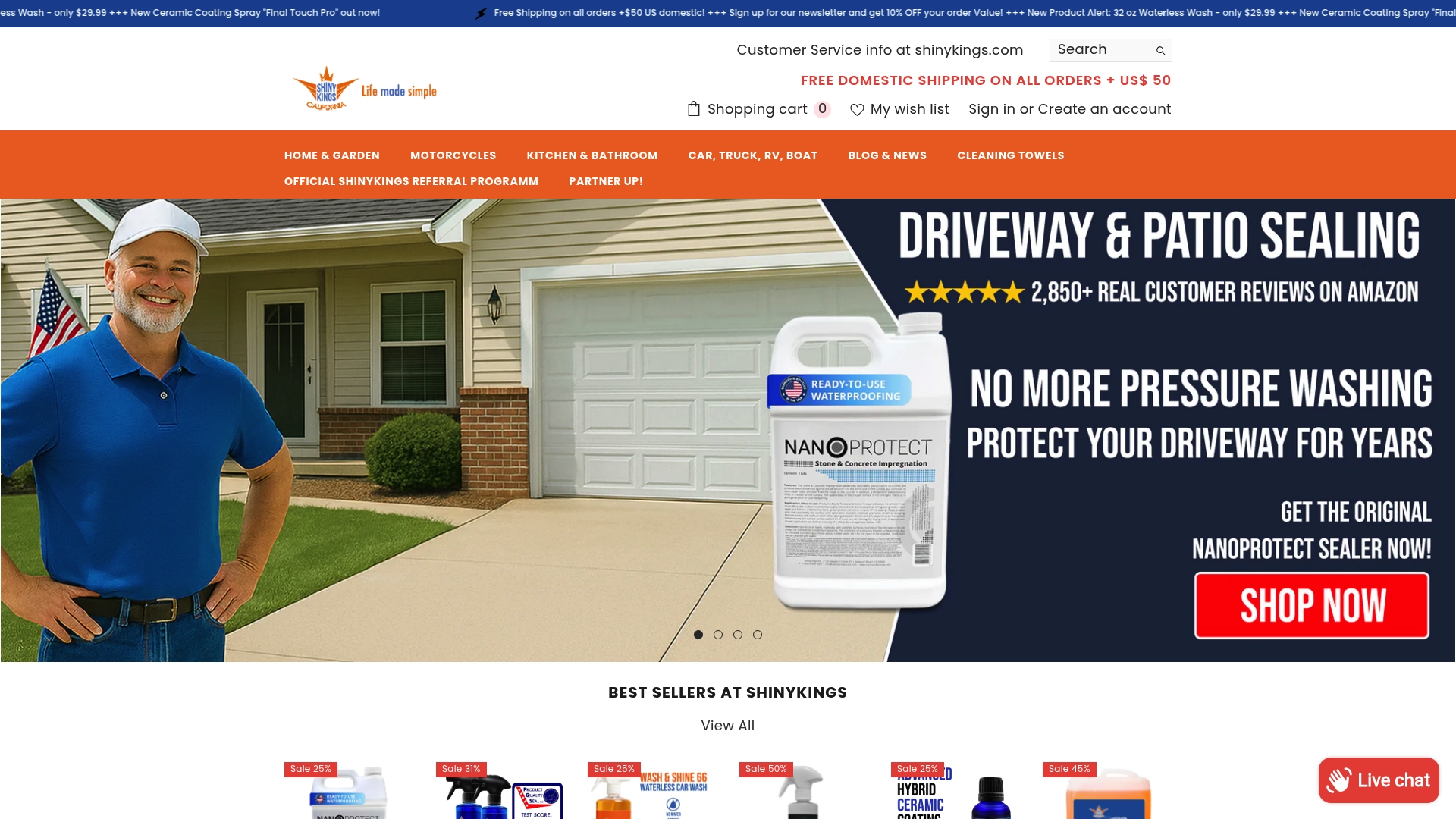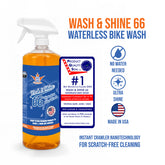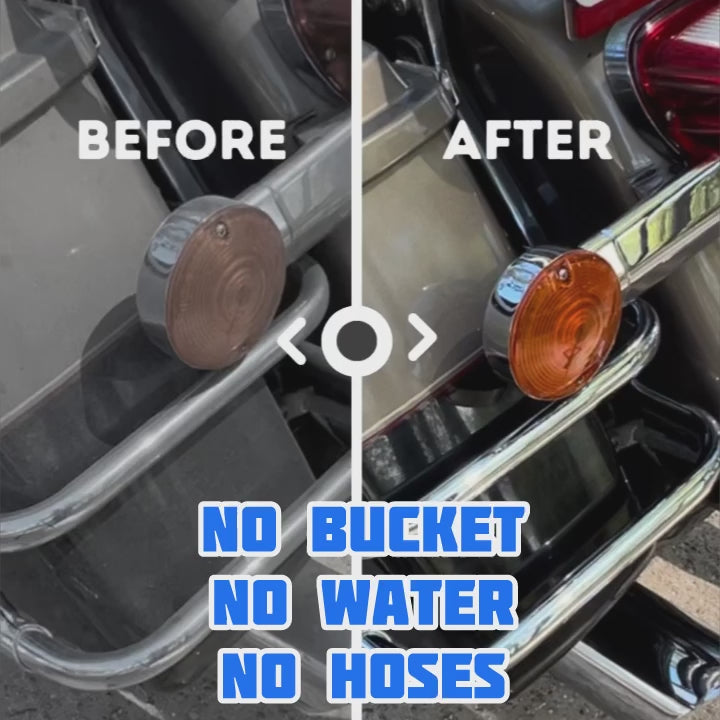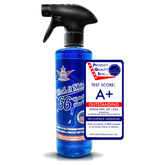Understanding the Function of Carwash Sealants
Carwash sealants promise more than a glossy shine. These advanced coatings pack a punch by using powerful ingredients like synthetic polymers and ceramic nano-particles. Some sealants can even increase your car’s resale value by several percentage points over time. People think wax protects cars well enough. That is old news. The science inside modern sealants goes way beyond looks and stops paint damage at a molecular level.
Table of Contents
- What Are Carwash Sealants And Their Ingredients?
- Why Using Carwash Sealants Matters For Your Vehicle
- How Carwash Sealants Protect Your Vehicle’s Finish
- Key Concepts Behind The Function Of Carwash Sealants
Quick Summary
| Takeaway | Explanation |
|---|---|
| Carwash sealants protect automotive finishes. | These specialized coatings create a protective layer against environmental damage, preserving paint integrity and appearance. |
| Key ingredients enhance durability and shine. | Synthetic polymers, silicone compounds, and ceramic nanoparticles provide strong bonding and water repellency, ensuring long-lasting protection. |
| Regular application reduces long-term maintenance costs. | High-quality sealants minimize paint repairs, significantly lowering expenses compared to professional detailing and corrections. |
| They enhance vehicle resale value. | Maintaining a flawless exterior with sealants can increase market price by preserving vehicle aesthetics and preventing damage. |
| Understanding sealants is crucial for vehicle owners. | Recognizing the benefits of sealants empowers owners to make informed decisions in preserving their automotive investments. |
What Are Carwash Sealants and Their Ingredients?
Carwash sealants represent specialized protective coatings designed to safeguard automotive paint surfaces from environmental damage and enhance vehicle appearance. These advanced chemical formulations create a transparent protective layer that shields a car’s exterior from various contaminants, UV radiation, and weathering effects.
Chemical Composition and Core Ingredients
Typically, carwash sealants comprise complex polymer structures engineered to provide maximum protection. Key ingredients in these formulations include:
- Synthetic polymers that create strong molecular bonds with vehicle paint
- Silicone-based compounds for water repellency
- Ceramic nano-particles for enhanced durability and shine
- UV inhibitors preventing paint oxidation and color fading
These ingredients work synergistically to form a robust protective barrier that repels water, dirt, and contaminants while maintaining the vehicle’s aesthetic appeal.
The table below summarizes the core ingredients commonly found in carwash sealants and explains their primary protective functions.
| Ingredient | Primary Function |
|---|---|
| Synthetic Polymers | Create strong molecular bonds with vehicle paint |
| Silicone-based Compounds | Provide water repellency |
| Ceramic Nanoparticles | Enhance durability and shine |
| UV Inhibitors | Prevent paint oxidation and color fading |
Performance and Protective Mechanisms
Unlike traditional waxes, modern carwash sealants offer superior protection through advanced chemical engineering. When applied, these sealants create microscopic layers that chemically bond with the paint surface, creating a hydrophobic shield that prevents water spots, chemical stains, and environmental pollutants from directly contacting the vehicle’s paint.
The function of carwash sealants extends beyond simple aesthetic enhancement. They provide critical protection against ultraviolet radiation, industrial fallout, bird droppings, tree sap, and other potentially damaging environmental elements.
The following table compares traditional car wax and modern carwash sealants based on their key characteristics and protective benefits.
| Feature | Traditional Car Wax | Modern Carwash Sealant |
|---|---|---|
| Protective Layer | Temporary | Long-lasting and durable |
| Bonding Mechanism | Surface coating | Chemical bonding with paint |
| Water Repellency | Moderate | High (hydrophobic properties) |
| UV Protection | Limited | Advanced (with UV inhibitors) |
| Resistance to Contaminants | Basic | Superior (chemical and environmental) |
| Shine Enhancement | Good | Excellent, maintains appearance longer |
 By creating a sacrificial layer, these sealants absorb potential damage that would otherwise directly impact the vehicle’s original paint finish.
By creating a sacrificial layer, these sealants absorb potential damage that would otherwise directly impact the vehicle’s original paint finish.
Why Using Carwash Sealants Matters for Your Vehicle
Vehicle maintenance goes beyond regular washing and basic care. Carwash sealants play a crucial role in preserving your vehicle’s appearance, value, and structural integrity. By understanding their significance, car owners can make informed decisions about protecting their automotive investments.
Preserving Vehicle Aesthetic and Resale Value
The visual appeal of a vehicle directly impacts its market value. Professional-grade sealants provide a robust defense mechanism that maintains your car’s showroom-like finish. Understanding sealant importance reveals how these protective layers prevent:
- Premature paint oxidation and fading
- Microscopic scratches and swirl marks
- Chemical staining from environmental pollutants
- Corrosive damage from salt, bird droppings, and industrial fallout
A well-maintained exterior can significantly enhance resale value, potentially increasing a vehicle’s market price by several percentage points.
Long Term Protection and Economic Benefits
Carwash sealants represent a strategic investment in vehicle longevity. By creating a microscopic protective barrier, these advanced formulations shield automotive surfaces from continuous environmental stress. The economic benefits extend far beyond cosmetic preservation.
Regular application of high-quality sealants can reduce long-term maintenance costs by minimizing paint repair expenses. Professional detailing and paint correction services can cost hundreds or even thousands of dollars, whereas a quality sealant application provides proactive protection at a fraction of the potential repair costs.
Moreover, sealants enhance your vehicle’s resistance to weathering, UV radiation, and chemical contamination. This protective approach translates into reduced degradation of your car’s exterior surfaces, ultimately extending the aesthetic and functional lifespan of your automotive investment.

How Carwash Sealants Protect Your Vehicle’s Finish
Carwash sealants provide a sophisticated defense mechanism against environmental threats, creating an invisible shield that preserves automotive paint integrity. Understanding these protective technologies helps vehicle owners recognize the critical role of advanced coating solutions in maintaining their car’s appearance and structural resilience.
Molecular Level Protection Mechanisms
Advanced sealant technologies work through intricate chemical interactions that establish a robust barrier between the vehicle’s paint and external contaminants. These protective layers operate at a microscopic level, forming strong molecular bonds that repel water, dirt, and potentially damaging substances.
The protective process involves several key defensive strategies:
- Creating a hydrophobic surface that prevents water and chemical absorption
- Establishing a sacrificial layer that absorbs environmental stress
- Blocking ultraviolet radiation that causes paint oxidation
- Preventing chemical bonding of pollutants with the original paint surface
Learn more about protective coating technologies and their advanced applications.
Environmental Threat Mitigation
Modern carwash sealants act as a sophisticated defense system against diverse environmental challenges. These formulations provide comprehensive protection from potentially destructive elements such as industrial fallout, bird droppings, tree sap, road salt, and ultraviolet radiation.
By creating a chemically resistant barrier, sealants prevent direct contact between harmful substances and the vehicle’s original paint surface. This protective mechanism significantly reduces the risk of permanent damage, paint degradation, and aesthetic deterioration. The result is a vehicle finish that maintains its original luster and structural integrity for an extended period, effectively minimizing long-term maintenance costs and preserving the automobile’s visual appeal.
This table outlines key environmental threats to automotive paint and shows how carwash sealants provide specific protective responses for each threat.
| Environmental Threat | Sealant Protective Response |
|---|---|
| UV Radiation | Blocks and absorbs to prevent oxidation |
| Water/Dirt | Creates hydrophobic barrier to repel |
| Chemical Contaminants | Forms sacrificial layer, resists bonding |
| Industrial Fallout | Prevents direct contact, reduces corrosion |
| Bird Droppings/Tree Sap | Shields surface, minimizes staining |
| Road Salt | Chemically resists and prevents corrosion |
Key Concepts Behind the Function of Carwash Sealants
Carwash sealants represent a sophisticated fusion of chemical engineering and automotive protection technologies. These advanced formulations go beyond simple surface treatments, embodying complex scientific principles designed to shield vehicles from environmental degradation.
Chemical Bonding and Surface Interaction
Molecular adhesion forms the foundational principle of carwash sealant functionality. These specialized compounds create intricate chemical bonds with automotive paint surfaces, establishing a robust protective layer that extends far beyond traditional waxing methods. Explore solvent-based sealer technologies to understand the deeper science behind these protective mechanisms.
The chemical interaction involves several sophisticated processes:
- Forming microscopic intermolecular connections with paint molecules
- Establishing a uniform, continuous protective membrane
- Creating hydrophobic surface characteristics
- Generating electrical resistance against environmental contaminants
Nanotechnology and Protection Mechanisms
Modern carwash sealants leverage advanced nanotechnology to deliver unprecedented protection. These microscopic molecular structures work collectively to create an intelligent defensive barrier that adapts to environmental challenges.
Nanotechnology enables sealants to:
- Distribute protective compounds evenly across automotive surfaces
- Penetrate microscopic paint pores for comprehensive coverage
- Maintain flexibility while providing rigid protective characteristics
- Resist temperature variations and mechanical stress
By understanding these intricate scientific principles, vehicle owners can appreciate the sophisticated engineering behind carwash sealants and their critical role in preserving automotive aesthetics and structural integrity.
Elevate Your Vehicle’s Protection with Proven Carwash Sealants
You have just seen how advanced sealants use sophisticated chemical bonding and nanotechnology to shield your car from everyday threats like UV rays, dirt, and environmental contaminants. If you are tired of watching your vehicle lose its shine or worrying about expensive paint repairs, it is time to experience the difference that truly professional protection delivers. Explore our collection of bestselling carwash sealants and coatings developed using the same science discussed in this article. These products are trusted by vehicle owners who want to preserve their paint and keep their cars looking new.

Do not let your car’s finish become an afterthought. Visit Shinykings now to discover world-unique sealants and detailing solutions that outperform ordinary products. Take action today and invest in the advanced technology that keeps your car protected and looking its best year-round.
Frequently Asked Questions
What are carwash sealants and how do they work?
Carwash sealants are protective coatings that create a transparent barrier on automotive paint surfaces. They work by chemically bonding with the paint to repel water, dirt, and other contaminants, while also providing protection against UV radiation and oxidation.
What ingredients are commonly found in carwash sealants?
Common ingredients in carwash sealants include synthetic polymers, silicone-based compounds, ceramic nano-particles, and UV inhibitors. These components work together to enhance durability and provide protection against environmental damage.
How often should I apply carwash sealants to my vehicle?
The frequency of application can vary, but it is generally recommended to reapply carwash sealants every 6 months to a year, depending on environmental conditions and usage. Regular maintenance helps preserve the protective barrier and extends the life of your vehicle’s paint.
Can carwash sealants replace traditional waxes?
Yes, carwash sealants offer superior protection compared to traditional waxes. They create a stronger molecular bond with the paint, providing enhanced durability, water repellency, and resistance to environmental contaminants. While waxes can provide shine, sealants are designed for more long-lasting protection.




